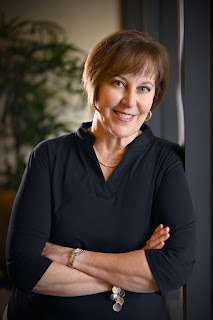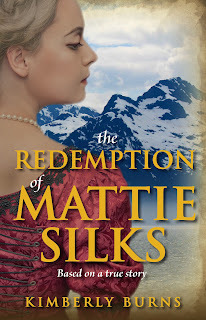Why I Write Historical Fiction - A Guest Blogpost by Kimberly Burns
Kimberly Burns writes historical novels based on the true lives of women of the Old West. Her debut novel The Mrs. Tabor won numerous awards. The Redemption of Mattie Silks is her latest book.

Any book that pleases and engages a singlereader is a good book. Any genre that encourages a young person to pick anotherbook has value. But, I lovehistorical fiction.
A historical novel has the ability to put areader in anyone’s shoes. When I open a historical novel I might find myself onthe dust-choked streets of the Old West in a waist-pinching corset andcalf-skin boots. Or I can prowl dimly lit corridors of a Scottish castle indainty velvet slippers. Perhaps, I am shod in sturdy leather shoes with shinybrass buckles as I debate freedom and revolution with patriots in 1776 Philadelphia.I can be any place and at any time.
Historical fiction makes the events of longago more relatable. Memorizing a list of dates and places for a history classprovides little understanding of the impact of events. Joseph Stalin isbelieved to have said, “If only one man dies, that is a tragedy. If millionsdie, that is only statistics.” A novel can help us wrap our minds aroundsweeping epic events. The immersion into the human life and its dailyactivities, seeing the smaller picture that lays within the bigger picture, createsempathy. This improved perceptive can also help us better navigate currentproblems and situations.
The blending of facts with imagination forms amore compelling read than just a textbook. Historical fiction entertains whileit educates. Storytelling has always been a part of the human experience; it isin our DNA. It’s how we have always shared our past, explained our culture, andtaught the next generation.
I grew up in the high mountains of centralColorado hearing stories of the colorful characters that first inhabited theregion. When I moved to the East Coast, I discovered that people didn’t knowmuch about the pioneers and their adventurous lives. The white settlers who exploredand made homes in the area were bold trailblazers, not just in the sense thatthey turned their backs on all they knew and trekked into the wilderness. Theutter lack of infrastructure and civilization allowed—nay, required—that strictconfining social dictates be thrown by the wayside. The old ways of thinkingwere smashed like a useless china tea set falling from the back of a Westwardwagon and new more pragmatic norms were accepted.
Women in particular benefited from thissocietal blank slate. The need for labor gave Western women opportunities tocreate careers that their sisters in the East did not have. Females in thewilderness territories blazed trails in business, were pioneers of medicine,and ground-breakers in politics. Females in the new states of Wyoming, Utah, andColorado were voting before the turn of the twentieth century, decades beforethe 19th Amendment was ratified. These gals were audaciously creatinghistory but in small ways that was rarely reported to the outside civilization.
So many fascinating stories, never wellrecorded, are being lost, fading from our collective memory. I want to sharethese tales of personal courage and societal innovation that would otherwisebecome a forgotten footnote. We can learn from these tenacious, fearless rolemodels. But only if we know of them.
I want to read and write about common peoplecaught in challenging situations and how they rose to meet them. The books thatline my shelves educate me, entertain me, and help me to develop a sense ofempathy that will serve me in the modern world. These novels inspire me. Thisis why I write historical fiction.
 Find out more at: https://www.amazon.com/stores/author/B09G4S8N2L
Find out more at: https://www.amazon.com/stores/author/B09G4S8N2L



